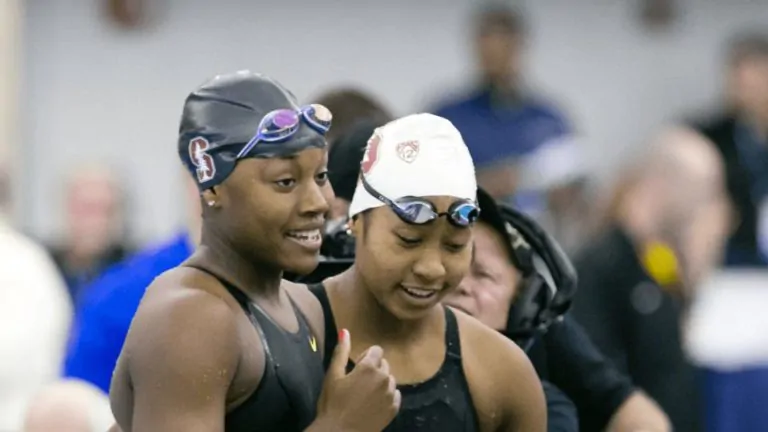To play a sport and be successful for a collegiate program requires years of hard work and relentless commitment from athletes. It is a result of thousands of hours of practice, tournaments, and showcases, and all while retaining their academic record. After competing with other student-athletes from around the country, finally a school offers a coveted position on the team for the upcoming year and the process is complete. Even after all of the work student-athletes put in to get recruited, some still drop their sport while they are still undergraduates and most others do after college is over.
More than 480,000 NCAA athletes are competing across 24 sports, yet only six sports have professional leagues where athletes can make a good living. The sports they go to and the percentage of NCAA athletes turned professional are Men's Basketball (NBA-1.2%, all other leagues-19.2%), women's basketball (WNBA-0.9%, all other leagues-4.9%), men's soccer (1.4%), men's ice hockey (NHL-6.4%), football (NFL-1.6%), and baseball (MLB and Minors-9.5%) (NCAA.com). These statistics can be seen as very low for student-athletes in the NCAA and can be used as an excuse to give up their sport. They see themselves stopping at the end of college anyway.
These percentages all approach zero when Division 1 programs are taken out of the equation. For DII, DIII, junior college, and club athletes, going professional in any of the six major professional sports can be seen as impossible. The other major pathway college athletes have been taking with their sports after college are the Olympics. The Olympics opens up opportunities for athletes in other sports to continue to compete after college but they are just as competitive to qualify for as it is to be signed to a professional sports organization, if not more competitive.
But not everyone drops their sport because they do not see themselves making a living off of playing it. A former club shot-putter for the University of Michigan Track and Field team was generous enough to share his reasons for dropping out of his sport after a nationally successful freshman year. He began with talking about playing at the high school level, “For me, track was always something I did with my friends, and I was good at it, so I liked it. I made most of my friends at practice and got to spend the most time with them after school.”
A big part of college is adjusting to a new life. That includes the differences that exist between high school and college sports. College sports are a different level of competitiveness, rather than the main focus being on education the main focus can be on the sport. The time commitment is off the charts; you can ask any college athlete what that is like. It is a very serious responsibility. Some students have athletic scholarships which rely on their performance during NCAA competitions. Students in this situation would not be able to drop their sport and remain a student, but scholarships still create a more competitive environment within college athletics compared to high school.
Students must adjust to a new level of competition, a new school, and a new home all at the same can be very overwhelming. Student's do not always experience what they expected once they get to college, and the surprises can be discomforting.
The Michigan track and field athlete I spoke with was never considering going professional or nor did they anticipate going to the Olympics. He loved his sport, and while in high school he felt as though he was on a team, but once in college, it felt like something different. He stated, “ When I got to college I didn't have the same social network with athletes that I had in high school, so it became more of an individual sport. For me, that made me realize I didn't love to do it anymore. I found myself dreading practice and not even looking forward to meets.” College changed how he viewed his sport and the experiences he had competing in it.
While playing at the college level works for some athletes some just become too frustrated with the system. Our Michigan athlete states, “So, after freshman year, even though I did really well at nationals, I just decided it wasn't a priority for me anymore.” Now a Junior, he has been off the team for the past two seasons and has had no regrets. He enjoyed the years' as a high school athlete and the fun times he had with friends. He does not regret working hard to have the skills to compete at the collegiate level and succeed at nationals. He is an excellent example of a student-athlete who dropped out because they did not love how sports were operated at the college level. He is much happier focusing on his education.
Athletes drop their sport for several other reasons, whether it be injuries, coach/teammate conflicts, academic struggles, or lack of playing time/success. These reasons, as well as the ones discussed, can at least somewhat be attributed to the higher level of competition that exists at the college level. It can frustrate some students or be too much pressure for others, or even change a student's mind about their sport in general. Student-athletes are forced to sacrifice a lot to compete and succeed at the collegiate level, and sometimes the comfort they used to find in their sport in high school is no longer there for them once they play at the college level. This can make the sacrifices they are making, or have already sacrificed outweigh the positives about playing their collegiate sport. Losing your passion for playing your sport has to frustrating and upsetting.
Athletes who are considered professional talent have a massive pro to being a collegiate athlete, but most student-athletes are not going to playing professionally. Once the student-athlete loses their connection with their sport they are likely to reconsider if staying on the team is worth it. Finishing out the season is always recommended, do not quit in the middle of a season, this would not be fair to the players or your coaches. But when that season is over take the time to talk to family members and counselors to decide if staying on the team is the best decision for you.
* Originally published on May 9, 2019, by Griffin Rubin







